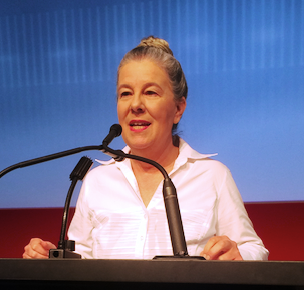- Home
- About Us
- The Team / Contact Us
- Books and Resources
- Privacy Policy
- Nonprofit Employer of Choice Award

 Recently, major supporters of WE Charity worked behind the scenes to discourage the CBC's Fifth Estate from doing a story on the ongoing questions surrounding WE and the Kielburger family. According to the CBC Editor's blog, "CBC News received dozens of complaints about our journalism before a single word of it had gone to air." Furthermore "For the past several months, as our journalists conducted research and interviews, we received more than 30 letters of complaint with multiple signatures from WE Charity donors who expressed concerns about our journalism, questioned the integrity of our reporters and urged us not to publish or go to air with the story. They wrote to our journalists, to the leaders of The Fifth Estate, to me, to the president of the CBC." [emphasis added]. To me, these actions by donors is the logical outcome of an excessively donor-centred approach to fundraising.
Recently, major supporters of WE Charity worked behind the scenes to discourage the CBC's Fifth Estate from doing a story on the ongoing questions surrounding WE and the Kielburger family. According to the CBC Editor's blog, "CBC News received dozens of complaints about our journalism before a single word of it had gone to air." Furthermore "For the past several months, as our journalists conducted research and interviews, we received more than 30 letters of complaint with multiple signatures from WE Charity donors who expressed concerns about our journalism, questioned the integrity of our reporters and urged us not to publish or go to air with the story. They wrote to our journalists, to the leaders of The Fifth Estate, to me, to the president of the CBC." [emphasis added]. To me, these actions by donors is the logical outcome of an excessively donor-centred approach to fundraising.
In our rush as a sector to be accountable to donors, we have preached "making the donor the hero" and "showing the donor the impact of their gift." In this process, we have explicitly created a culture which promotes a saviour mentality. With thank you notes, videos, impact statements, we have turned the power dynamic to one where the donor is at the centre at all times and in all situations.
To be fair, donors are important to a charity. It is often the case, even now, that charities take donors for granted. Charities will skip simple steps like sending a timely gift acknowledgement or updating them on the organizations. It is absolutely the case that donors have a right to reasonable treatment including respectful thanks and timely check-ins.
Basic courtesy outlined above is a far cry from donors who are so empowered that they are willing to trample over a free press. When we in the charity sector constantly emphasize to donors that they are important, difference makers, and that our work cannot continue without them, we are giving them too much agency.
While donors are valuable, their views and their power should not come at the expense of the mission of the charity. Nor should their support of a given charity grant them special access or different status than other members of the public when it comes to the news media. As a charity sector, we must shoulder much of the blame for this attitude. By raising up donors in such a lofty way, we have inflated their importance. The actions of the group of powerful WE Charity supporters makes true the old expresssion "Dr. Frankenstein, meet your monster."
Sources
"What happened behind the scense of our WE Charity investigation." CBC Editor blog retrieved November 28, 2021
Ann Rosenfield, MBA, CFRE is a working fundraiser with over 20 years experience in the charitable sector including volunteer work for AFP, CAGP, and Imagine Canada. She also serves as a Board member for a LGBTQI refugee organization.
Cover photo by Laura Chouette on Unsplash